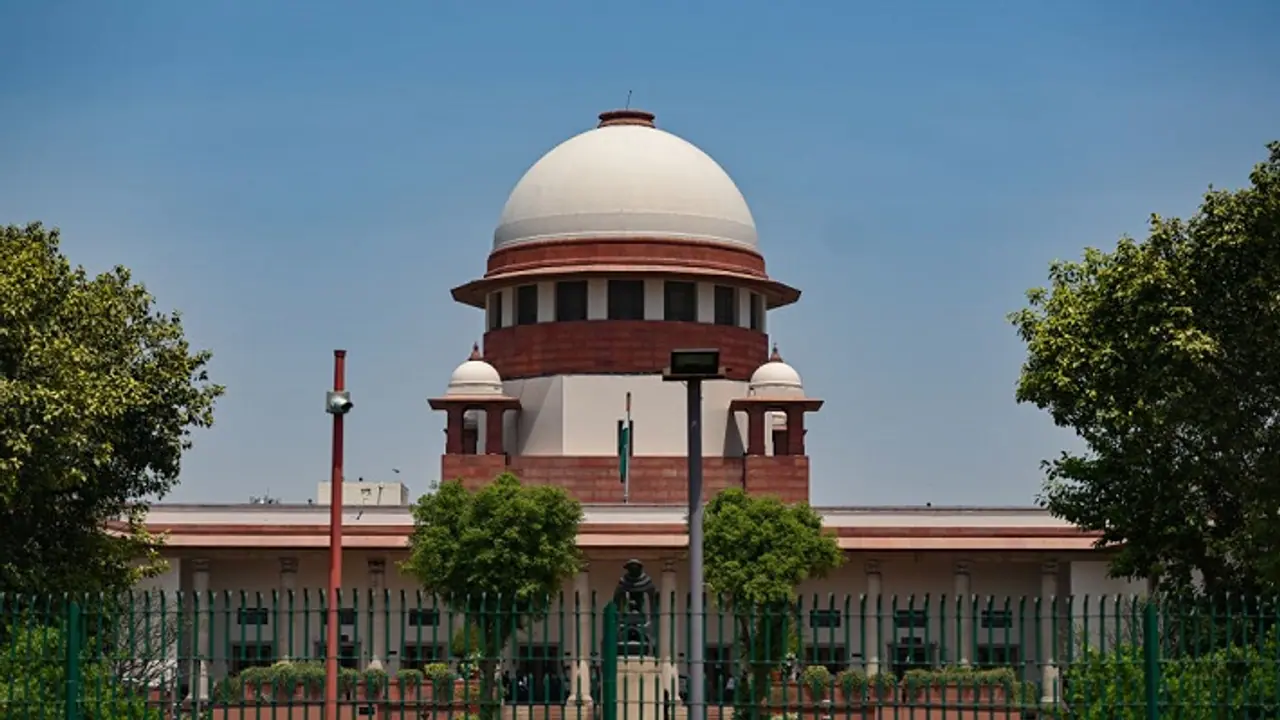A five-judge Constitution bench headed by Chief Justice DY Chandrachud, had, on November 2 last year reserved its verdict in the matter. The scheme, which was notified by the government on January 2, 2018, was pitched as an alternative to cash donations made to political parties as part of efforts to bring in transparency in political funding.
The Supreme Court on Thursday struck down the electoral bond scheme that allows anonymous donations to political parties by purchasing electoral bonds, saying anonymous electoral bonds violated citizens’ right to information. A five-judge Constitution bench headed by Chief Justice DY Chandrachud delivered two separate but unanimous verdicts on pleas challenging the scheme.

The Supreme Court declared electoral bonds to be "unconstitutional," stating that "saying black money is being curbed is not a proportionate justification for infringement of the voter's right to know." Chief Justice of India (CJI) DY Chandrachud delivered the decision, ruling that the plan violates Article 19(1)(a) of the Constitution, which protects freedom of speech and expression.
The Election Commission of India (ECI) has asked the State Bank of India (SBI), the bank that issues electoral bonds, to provide it with a list of political parties that have received bonds since 2019. The deadline for this request is three weeks. It has been requested that the ECI provide these facts on its official website as well.
What are electoral bonds?
Election bonds are financial instruments that people or corporations can buy from a bank and provide to a political party, which can then redeem them for money. Electoral bonds were first introduced in January 2018. These bonds must be bought from the State Bank of India but can be donated to parties anonymously.
While donors using electoral bonds are technically anonymous, however, the State Bank of India is publicly owned, meaning the ruling party has access to its data. They could be purchased by individuals, groups or corporate organisations and donated to the political party of their choice, which can then redeem them, free of interest, after 15 days.
What did the petitioners say?
Three petitioners had approached the Supreme Court challenging the amendments made by the Finance Act 2017 that created the electoral bonds scheme. They claimed that voters' right to know is violated and that the secrecy surrounding these bonds lessens transparency in political finance. They added that contributions from shell corporations are accepted under the plan.
How did the Centre defend it?
The central government defended the scheme, saying it ensures that only legitimate money is used for political funding through proper banking channels. They argued that keeping donors' identities secret protects them from retaliation by political parties.
Solicitor General Tushar Mehta, speaking on behalf of the Centre, said during the hearings that the Electoral Bond scheme guarantees equitable use of funds for political purposes via appropriate banking channels.
